It Is Time Safety Became More Than A Few Features In Cars!
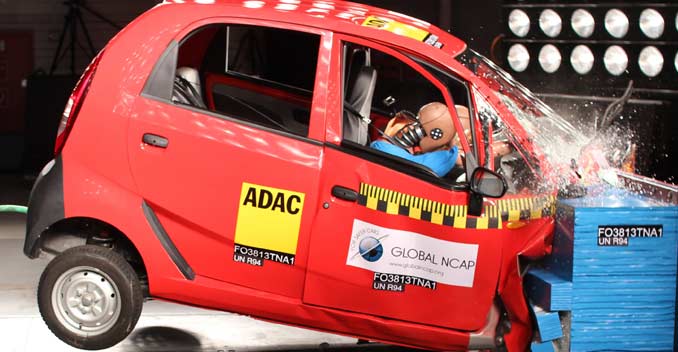
Engaged in a discussion with my colleague about the latest technology in cars, I found the conversation slowly drifting to safety relevant technology. Eventually it came down to this question in particular, 'why are safety provisions still looked upon as extra features instead of an absolute necessity?'. Are the customers to blame for letting manufacturers get away with sub-par safety provisions in exchange for a cheaper price tag? Or are the manufacturers to be held guilty?
The market expressed great furor when a handful of India's best-selling small cars failed crash tests conducted by Global New Car Assessment Programme (NCAP). However, did it translate into action? Not really, except for the government's recent efforts to make crash tests mandatory for Indian cars. The government is also lobbying to mandate the inclusion of a handful of safety relevant features as standard in all cars. That leads me to wonder, why are we still 'lobbying' to make our lives safer?
It wasn't till Global NCAP issued a zero-star rating to the Polo, that Volkswagen decided to make front airbags standard for the hatchback. So long story short, unless your reputation is at stake, basic safety features can be done away with. Other cars suffer a similar fate; safety features are labelled as different trims on most cars that ply on Indian roads. However, there is one brand that endeavours to provide for safety even in the face of rising costs. Volvo. Way back in 1959, it invented the 3-point safety belt and went on to give it to all car manufacturers royalty free. Sets a positive precedent, right? And as far as their cars are concerned, the 'safety' section of the spec sheet of every Volvo car in India had 'standard' written all over it.
Sudeep Narayan, Marketing & PR Director, Volvo Auto India, said, "India has the highest number of road accidents in the world. There were close to 140,000 fatalities due to road accidents in India in 2012. However at Volvo our aim is that by 2020 nobody should be fatally injured or killed in a Volvo. In the longer perspective Volvo's vision is that cars should not crash at all."
He adds, "The news of Indian government coming out with the New Car Assessment Programme (NCAP) guidelines is a welcome step. The new guidelines will certainly usher in a range of new safety measures that would further help in saving lives on the road." Agreed, it is a luxury brand - a segment that usually tends to safety needs without being prodded to - but it sets an example nevertheless.
According to the World Health Organisation (WHO), one person dies on Indian roads every 5 minutes, and this figure is projected to rise to one every 3 minutes by 2020. Horrifying, and yet not quite to necessitate the provision of most basic safety features as standard. Since when did affordability become more important than our lives? What will it take for us to give safety the importance it deserves?
For the latest automotive news and reviews, like us on Facebook or follow us on Twitter and Instagram.
Latest News
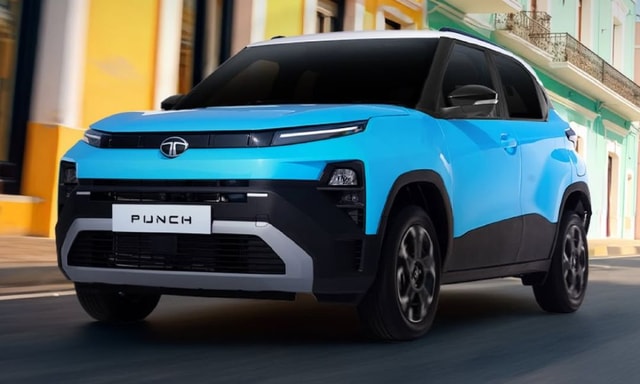 Jaiveer Mehra | Jan 5, 2026Tata Punch Facelift Revealed Ahead Of January 13 LaunchFacelifted Punch gets styling elements inspired by its electric sibling and packs in more tech and a new engine option.1 min read
Jaiveer Mehra | Jan 5, 2026Tata Punch Facelift Revealed Ahead Of January 13 LaunchFacelifted Punch gets styling elements inspired by its electric sibling and packs in more tech and a new engine option.1 min read Carandbike Team | Jan 5, 2026Mahindra XUV 7XO Launch LIVE Updates: Price, Features, Specifications, Images1 min read
Carandbike Team | Jan 5, 2026Mahindra XUV 7XO Launch LIVE Updates: Price, Features, Specifications, Images1 min read Bilal Firfiray | Jan 5, 2026Volkswagen Reveals Electric Polo Cabin; Previews Future Interior PhilosophyVolkswagen has previewed its next-gen, customer-driven ID. cockpit in the near-production ID. Polo concept, blending intuitive physical controls, recycled materials, one-pedal driving and retro Golf-inspired digital dials.1 min read
Bilal Firfiray | Jan 5, 2026Volkswagen Reveals Electric Polo Cabin; Previews Future Interior PhilosophyVolkswagen has previewed its next-gen, customer-driven ID. cockpit in the near-production ID. Polo concept, blending intuitive physical controls, recycled materials, one-pedal driving and retro Golf-inspired digital dials.1 min read car&bike Team | Jan 5, 2026JSW MG Motor India Sells 46,735 Windsor EVs In CY2025; EV Sales Up By 111%The carmaker closed CY2025 with overall growth of 19 per cent, while its EV sales grew by 111 per cent compared to CY2024.2 mins read
car&bike Team | Jan 5, 2026JSW MG Motor India Sells 46,735 Windsor EVs In CY2025; EV Sales Up By 111%The carmaker closed CY2025 with overall growth of 19 per cent, while its EV sales grew by 111 per cent compared to CY2024.2 mins read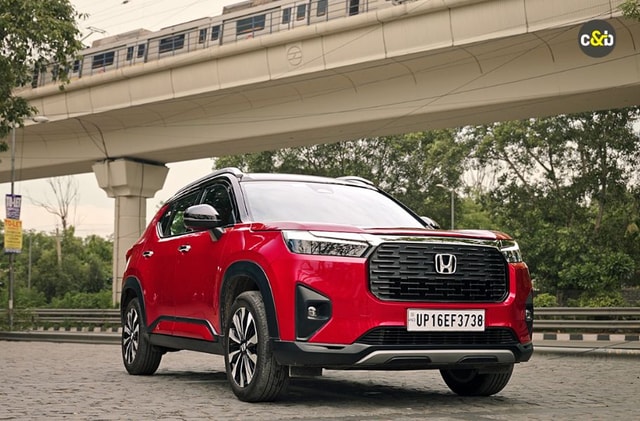 car&bike Team | Jan 5, 2026Honda Elevate, City Offered With Discounts Of Up To Rs 1.76 Lakh In Jan 2026The new Amaze is being offered with benefits of up to Rs 60,000.1 min read
car&bike Team | Jan 5, 2026Honda Elevate, City Offered With Discounts Of Up To Rs 1.76 Lakh In Jan 2026The new Amaze is being offered with benefits of up to Rs 60,000.1 min read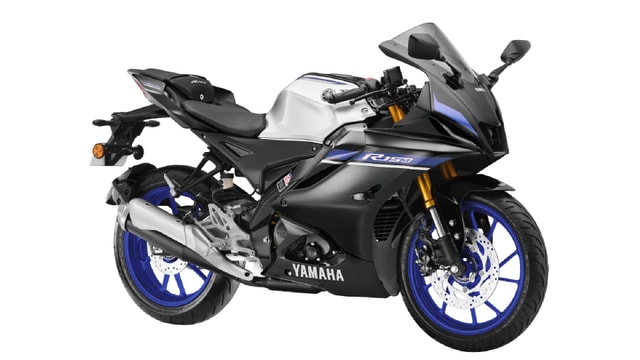 Carandbike Team | Jan 5, 2026Yamaha R15 Range Offered With Rs 5,000 DiscountAs part of Yamaha’s 70th anniversary celebrations, the brand has slashed prices for the R15 model range.2 mins read
Carandbike Team | Jan 5, 2026Yamaha R15 Range Offered With Rs 5,000 DiscountAs part of Yamaha’s 70th anniversary celebrations, the brand has slashed prices for the R15 model range.2 mins read
 Amaan Ahmed | Jan 3, 2026VLF Mobster 135 300 KM Review: Fun But FlawedA 125 cc scooter with Italian design and Chinese genes is a rare combination, and while some may be tempted to dismiss it because of its origins, the VLF Mobster shows 125s can also be exciting – but not without compromises.1 min read
Amaan Ahmed | Jan 3, 2026VLF Mobster 135 300 KM Review: Fun But FlawedA 125 cc scooter with Italian design and Chinese genes is a rare combination, and while some may be tempted to dismiss it because of its origins, the VLF Mobster shows 125s can also be exciting – but not without compromises.1 min read Preetam Bora | Dec 30, 2025TVS Orbiter Review: Real-World Performance and Range TestedThe TVS Orbiter is a promising electric scooter promising decent range, practicality and pricing. But is there any reason to avoid it? We spent a few days getting to know it better.9 mins read
Preetam Bora | Dec 30, 2025TVS Orbiter Review: Real-World Performance and Range TestedThe TVS Orbiter is a promising electric scooter promising decent range, practicality and pricing. But is there any reason to avoid it? We spent a few days getting to know it better.9 mins read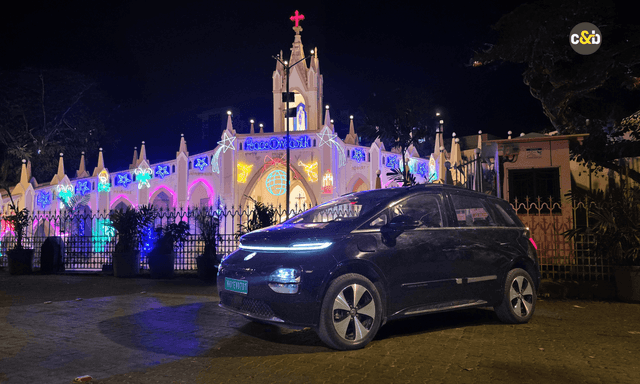 Jafar Rizvi | Dec 24, 2025MG Windsor EV 38 kWh Long-Term Report: IntroductionThe Windsor EV has joined our garage, and before it settles into daily duty, I took it out to get a sense of what living with an electric car is like.4 mins read
Jafar Rizvi | Dec 24, 2025MG Windsor EV 38 kWh Long-Term Report: IntroductionThe Windsor EV has joined our garage, and before it settles into daily duty, I took it out to get a sense of what living with an electric car is like.4 mins read Seshan Vijayraghvan | Dec 23, 20252026 Kia Seltos Review: Formula Is Spot On, But Is The Timing Right?The 2nd-gen Kia Seltos has arrived, but it has the challenge of facing strong rivals like the Victoris and Sierra. The question is simple - Does it still have what it takes?9 mins read
Seshan Vijayraghvan | Dec 23, 20252026 Kia Seltos Review: Formula Is Spot On, But Is The Timing Right?The 2nd-gen Kia Seltos has arrived, but it has the challenge of facing strong rivals like the Victoris and Sierra. The question is simple - Does it still have what it takes?9 mins read car&bike Team | Dec 26, 2025Tata Punch EV Long-Term Second Report: Highway Performance, Pros & ConsAfter a week of living with the Tata Punch EV Long Range—including a proper Mumbai-Nashik highway test—we've learned what this little electric SUV is really made of.1 min read
car&bike Team | Dec 26, 2025Tata Punch EV Long-Term Second Report: Highway Performance, Pros & ConsAfter a week of living with the Tata Punch EV Long Range—including a proper Mumbai-Nashik highway test—we've learned what this little electric SUV is really made of.1 min read
























































































































